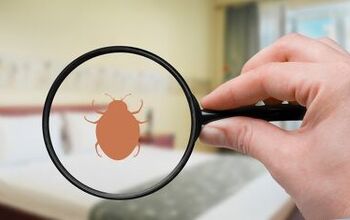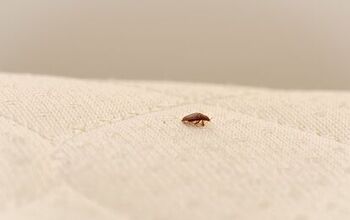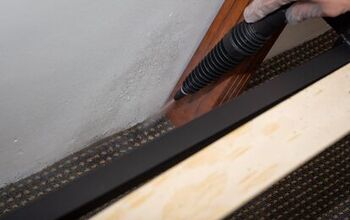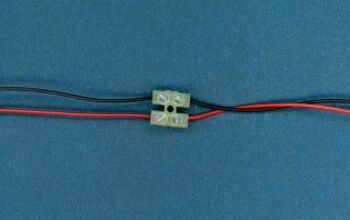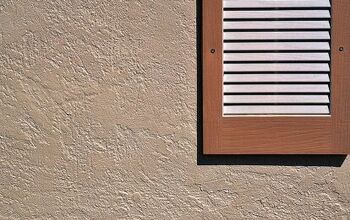How Long Can Bed Bugs Survive In An Empty House?

An infestation of any kind is a significant inconvenience, whether it’s cockroaches, fleas, or other pests. An especially dicey problem to deal with is a pesky case of bed bugs. Bed bugs feed on your blood, make you itch, and cause skin inflammation around their bites.
Bed bugs can last up to 365 days or longer in an empty house. You can remove the bed bugs before that time with heat treatment, tea tree oil, and heavy cleaning. Call an exterminator to treat, fog, or bug bomb the house to kill the bed bugs.
If you are dealing with a bed bug situation, this article is for you. Read on to find out why you should take the time to clear out an empty home before moving in or clear your home before moving out. Bed bugs are hard to get rid of when the house is full of furniture!
Do You Need Pest Control Services?
Get free, zero-commitment quotes from pro contractors near you.

How Long Does it Take For Bed Bugs to Die Without a Host?
The exact range is anywhere from 20 to 400 days. But the answer varies based on a few key factors. As discussed above, age is one of these factors. Older bed bugs will survive without a host longer than younger ones will.
But there are other factors that go into this too. This is a list that includes:
- Temperature and humidity levels
- Predators in the area
- Energy exertion
- Stress
Researchers have found that bed bugs can live up to 400 days in perfect lab conditions. But it’s unlikely that a bug would make it that long in your home. Still, they could survive as long as 6 months if the conditions are right.
Do Bed Bugs Infest The Whole House?
Bed bugs feed on human and animal hosts. So they tend to stay in the areas where the hosts are most often. That means most of the bed bugs will remain in bedrooms and sleeping areas. However, bed bugs can move throughout the entire house in large infestations.
If there are enough bed bugs, they can invade virtually every surface in your home. It really just depends on how quickly you catch the problem and resolve it.
Common Causes Of Bed Bugs
Bed bugs are a pesky problem to have. We’ve provided a list of the common causes of bed bugs.
Recent Travel
Bed bugs are likely a result of recent travel. If you’ve recently traveled to an area with bed bugs, they most likely hitched a ride home with you.
Because they are so small, bug bites are difficult to detect, so you probably won’t notice until it’s too late. Unbeknownst to you, bed bugs can take up residence on your clothes, in your suitcase, and on other fabrics.
The most infamous places for bed bugs have always been hotels. However, now bed bug infestations have become a more widespread problem. You can encounter bed bugs practically anywhere with fabric, like movie theaters, college dorms, hospitals, retail stores, and more.
How To Avoid Hitchhiking Bed Bugs
The best way to avoid bringing bed bugs back home is to check surfaces in the hotel. Bed bugs are about the size of apple seeds. If you notice apple seed-sized bugs on your linens, request new sheets.
If you’re not comfortable using hotel sheets, bring your own sheets on trips. Always put your suitcase on a suitcase stand or desk, not the floor, to avoid bed bugs. When you return home, wash your clothes thoroughly in hot water.
Secondhand Furniture Can House Bed Bugs
If you haven’t traveled recently and still have bed bugs, they could be from secondhand furniture. Thrifting furniture is exciting and wallet-friendly, but make sure to check your new piece before bringing it home.
Be sure to thoroughly inspect seams, cushions, and pillows for those pesky bugs. If you suspect an item may have bed bugs, the best course of action is to throw the piece out. If you can’t bear to part with your new purchase, clean the fabric with some very hot steam.
Why Bed Bugs Can Survive So Long In An Empty House
Bed bugs are talented at infesting your home and staying hidden while they do so. Here are just some of the reasons bed bugs can become a big problem in your home:
- Bed bugs can survive in the hot or the cold. Bed bugs are not picky about the temperature of your home environment.
- Bed bugs are also photophobic, meaning they run away from any light. This trait makes them particularly tricky to locate. Bed bugs scatter at the first sign of light and hide in places that are difficult to reach.
- Bed bugs have developed resistance to popular pesticides over the years. This means they’re harder to get rid of with traditional pest control methods.
- Bed bugs hibernate. If you have a bed bug problem, those pesky bugs will disappear in the winter. You might get a false sense of security that they’re gone for good, but they’re just storing energy. Hibernation also means that bed bugs can sit and wait for new food sources to move in. This is why abandoning your home is not the best course of action upon learning of your bed bug problem.
- Bed bugs breed very quickly. They can lay anywhere from five to eight eggs a week. These eggs will most likely hatch in ten days, though this varies depending on temperature. If you have lots of bed bugs in your home, they’ll multiply very quickly.
- Bed bugs are excellent at traveling. They can crawl on walls and hop on to your clothes or bags in a hotel room and come home with you. Bed bugs can latch on to your dog and travel from room to room in your home.
At any given time, bed bugs are always looking for a food source and travel wherever they need to in your home to find one.
How To Check For Bed Bugs
Of course, if you’ve noticed abundant bites on you and other members of your family, you most likely have bed bugs. However, to handle the problem effectively, you need to know for sure.
The way to identify bed bugs is through fecal trails, skin remains, and blood.
- Fecal trails will be small and dark.
- The shells are a result of the bed bugs shedding their skin after they feed.
- The blood will be rusty in color and is often from a crushed bed bug.
Step 1: Check Your Mattress
If you think you have bed bugs, the first place to check is your mattress. Bed bugs love tiny crevices, so check in each of the mattress folds, and don’t ignore any small indentations.
Check under the mattress, as bed bugs hate the light and love dark places. If you have any rips or tears in your mattress, the bed bugs may have burrowed inside of it. If your mattress is infested, it may be a lost cause. It may be time to throw the old one out and buy a new one.
Step 2: Look At Your Box Spring
Next, check your box spring for bed bugs. Check the edges and stitching of your box spring as well as underneath it. Also, check under the dust cover on the back of the box spring.
Step 3: Check Other Furniture
If you don’t find bed bugs in your bed, you’re not out of the woods yet. Check your furniture, making sure to check on, around, and under any cushions and pillows. Don’t forget to look underneath large pieces of furniture like your couch and oversized easy chairs.
Five Ways To Get Rid Of Bed Bugs For Good In Your Home
You don’t have to move into a new home to ditch the bed bugs. Here are few ways to get rid of that pesky infestation:
- Use heat. Bed bugs can survive in most temperatures, but anything above 113 degrees will kill them. You can decontaminate your home by steam cleaning surfaces. This is one of the most effective ways to neutralize your bed bug problem.
- Spray tea tree oil on surfaces. Bed bugs are repelled by the pungent smell of tea tree oil. However, this method only diverts bed bugs away from certain areas; it doesn’t necessarily eradicate them.
- Sprinkle diatomaceous earth on your fabric surfaces. It is a fine white powder that damages the exoskeleton of the bed bugs. You can purchase diatomaceous earth at Home Depot or on Amazon.
- Clean your house extensively. Scrub surfaces with a hard brush to dislodge eggs, and launder all linens in hot water to kill eggs that may be residing in them—vacuum extensively along baseboards, edges of the bedding, and other surfaces in the room.
- If all else fails, call an exterminator that specializes in bed bugs. Using a pro that specializes in handling bed bugs is the best way to ensure you get rid of bed bugs for good.
What Do Bed Bugs Hate?
There are lots of different scents that bed bugs dislike. You can use these in your home to ward off future infestations or to address current ones. Here are some of the most effective scents for you to try.
Fresh mint is one of the best bed bug repellants. Bed bugs can’t stand the smell and it impacts their nervous system. The best way to use mint is to boil some in a pot of water. The scent will spread throughout your home and flush out the bed bugs. You can also put some mint in a spray bottle and spray it where the bugs are hiding.
Garlic is also a great way to fight off a bed bug infestation. It’s best to crush a few cloves of it where the bugs are hiding. You may also want to boil the cloves in water first to release the scent even more.
Here are some other scents that bed bugs hate:
- Cayenne pepper
- Alcohol
- Lavender
- Cinnamon powder
How Much Does Bed Bug Treatment Cost?
The cost of bed bug treatment varies depending on the size of the infestation and infested space and the type of treatment. The average homeowner can spend anywhere from $1,000 to $2,500 to exterminate bed bugs. Often, you might have to pay an inspection fee of anywhere from $50 to $500.
However, you can pay as little as $300, depending on the size of the problem. For example, if you just have certain items treated, like a mattress cover, this is less costly than treating your entire home. However, it is very likely that bed bugs will come back, and repeat exterminator visits will be necessary.
You can expect to pay anywhere from $4 to $8 per square foot for fumigation, which can easily surpass $10,000 if you live in an average-size home. You will need to vacate your home for several days while being treated, but that’s certainly better than the alternative!
Related Questions
How long can bed bugs survive without food?
Bed bugs can survive anywhere from 20 to 400 days without feeding, but it varies based on temperature and climate.
How do you identify a bed bug bite?
Not sure if your bite is from a bed bug? Bed bug bites are red, itchy, and tend to appear in straight lines on the body. Bites can become inflamed easily if you scratch them too much.
Do You Need Pest Control Services?
Get free, zero-commitment quotes from pro contractors near you.

Wrapping Up
Bed bugs are a pesky infestation and no fun to have in your house. However, bed bugs can live up to a year in an empty house! Simply abandoning your home for a while isn’t the best course of action.
Bed bugs can enter your home as a result of travel or through secondhand furniture. Always check the bed in your hotel room thoroughly for bed bugs and signs of bed bugs (like small blood spots). Check seams and cushions of thrift furniture for bed bugs and discard the item if it’s infested.
Bed bugs are resilient; they can survive in the hot or cold, scatter in the light, and resist many pesticides. These qualities make it easy for bed bugs to hang out in your empty home for quite some time. You can get rid of bed bugs using heat treatments, tea tree oil, or diatomaceous earth. But, your very best bet is to call an exterminator. Follow these steps to keep your home free and clear, and don’t let the bed bugs bite!

Stacy Randall is a wife, mother, and freelance writer from NOLA that has always had a love for DIY projects, home organization, and making spaces beautiful. Together with her husband, she has been spending the last several years lovingly renovating her grandparent's former home, making it their own and learning a lot about life along the way.
More by Stacy Randall










